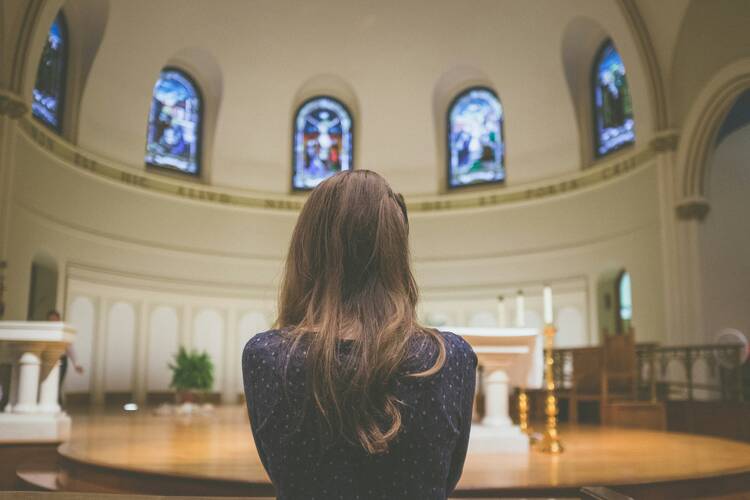A Reflection for Monday of the Sixth Week of Easter
Find today’s readings here.
After she and her household had been baptized,
she offered us an invitation,
"If you consider me a believer in the Lord,
come and stay at my home," and she prevailed on us. (Acts 16:15)
Very little excites me more than opening up the readings for the day and meeting a biblical woman I have not yet heard of.
In today’s first reading from the Acts of the Apostles, we are introduced to Lydia, who has a kind of conversion experience after hearing the words of St. Paul in Philippi. She and her family are then baptized, and she extends an invitation of welcome to the Apostles: “If you consider me a believer in the Lord, come and stay at my home.”
As a young, lay woman working in the Catholic world, I always feel like there’s something for me to reflect on in the readings that feature the women who were part of the early Christian communities. Ultimately, what keeps sticking with me in Lydia’s offer is this conditional phrase: “If you consider me a believer in the Lord.” In a few simple words, she opens herself up to be judged, for the disciples to decide whether or not she is worthy of belonging in their Christian community. It strikes me that this is the experience many women who present themselves for positions of leadership or authority in the Catholic Church have, too. Do the decision-makers deem me to be learned enough, faithful enough, blameless enough, qualified to be one of them?
A spoiler alert for the rest of the Acts of the Apostles: They do. After their imprisonment at Philippi, the apostles take Lydia up on her offer and go to her home. It’s a promising model for women like me who hope to be active, contributing members of the Catholic community in today’s world: She offered what she could, and the ones leading the charge decided that what she had to offer was valuable. In doing so, they opened the door for her to both humble herself in service to others and, at the same, to exercise her own kind of leadership.
This thing we call “church” is a living project for which these early Christians laid the foundation. The early believers were a testament to how powerful a force community can be. By sharing their lives with one another and facing obstacles as a group, they made something tangible, human and lasting out of the message Christ had left behind for them.
I know Catholic women who do this beautifully; they are my colleagues, family members, community members and role models. In so much of the church today, it’s women who hold up community structures—and who push for models that will be more inclusive, fulfilling and vital for the generations that will come after them.
Lydia’s offer to the apostles can be ours to those we meet: If you trust me, if you’re comfortable with me, stay here with me and know you’re welcome, wanted and loved. That’s the kind of community the early Christians were forging—and the one the church should keep striving to be.








